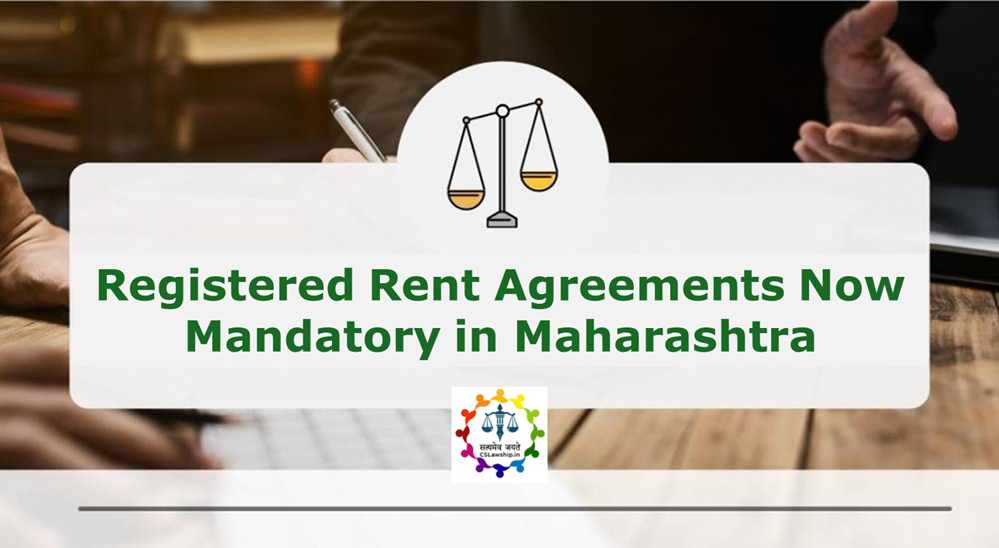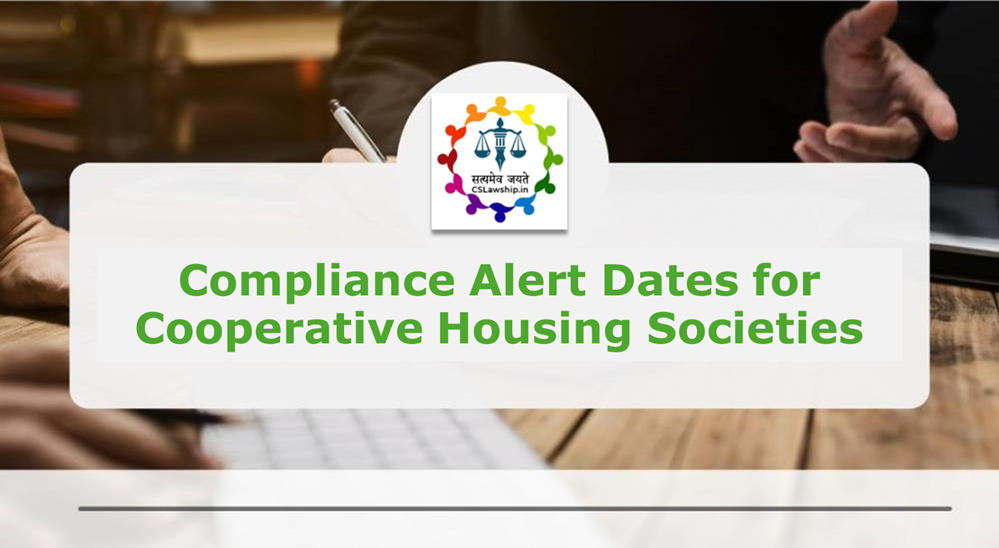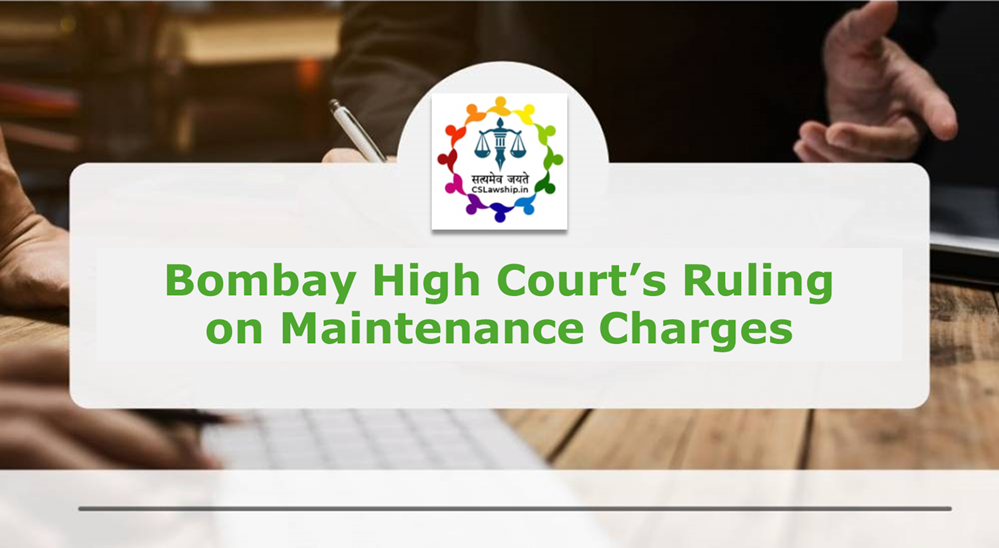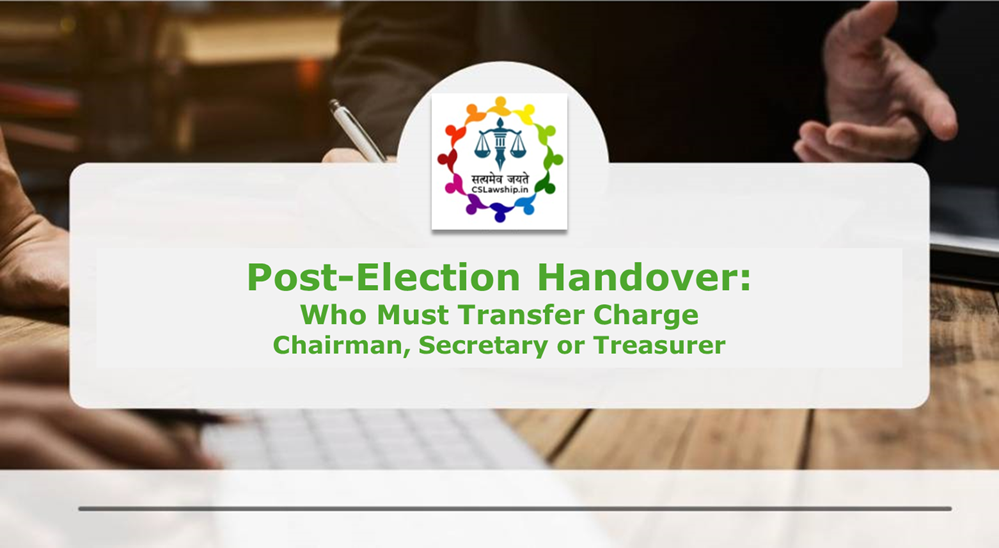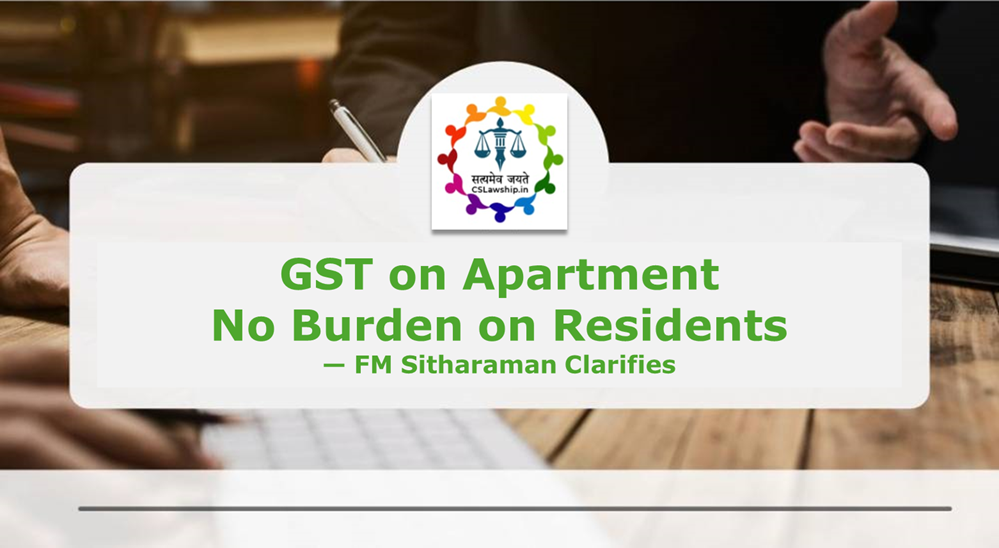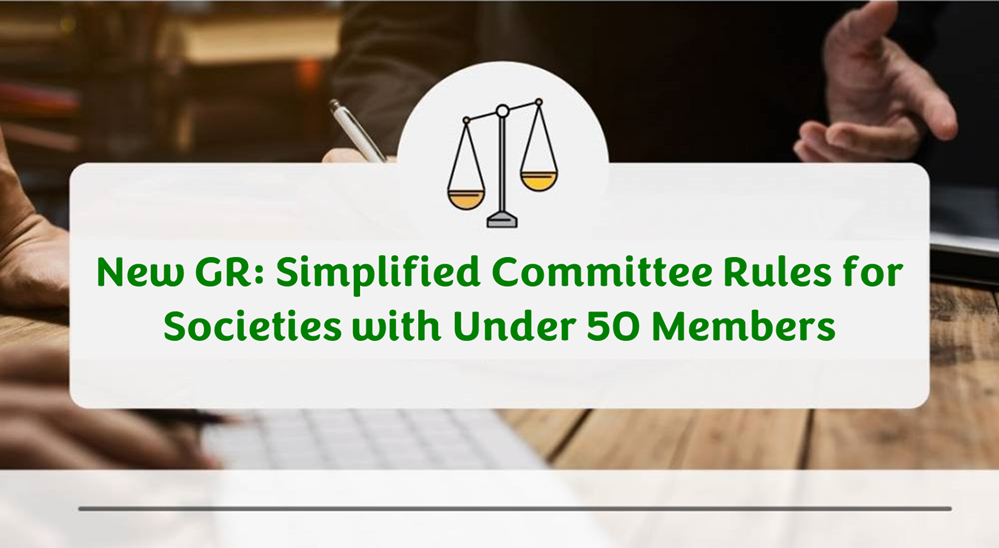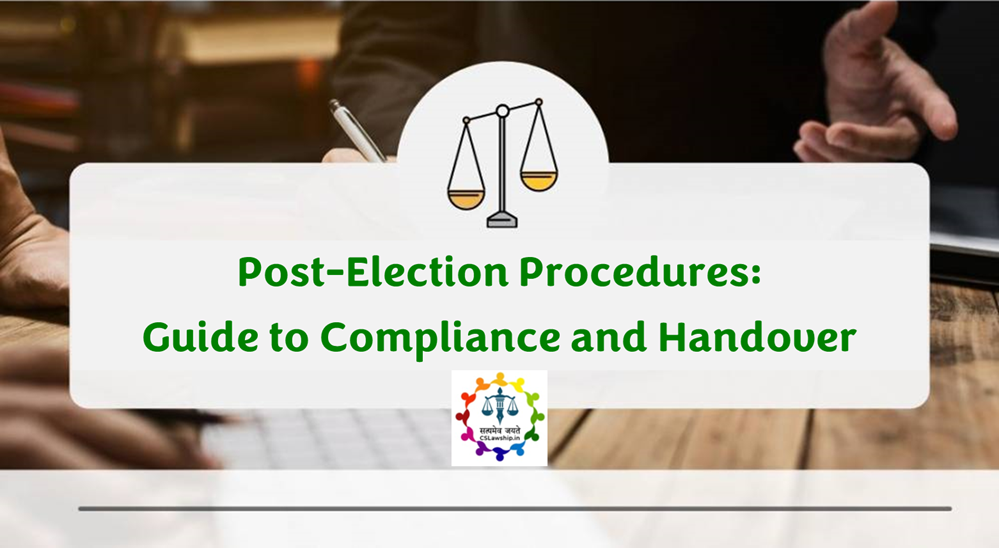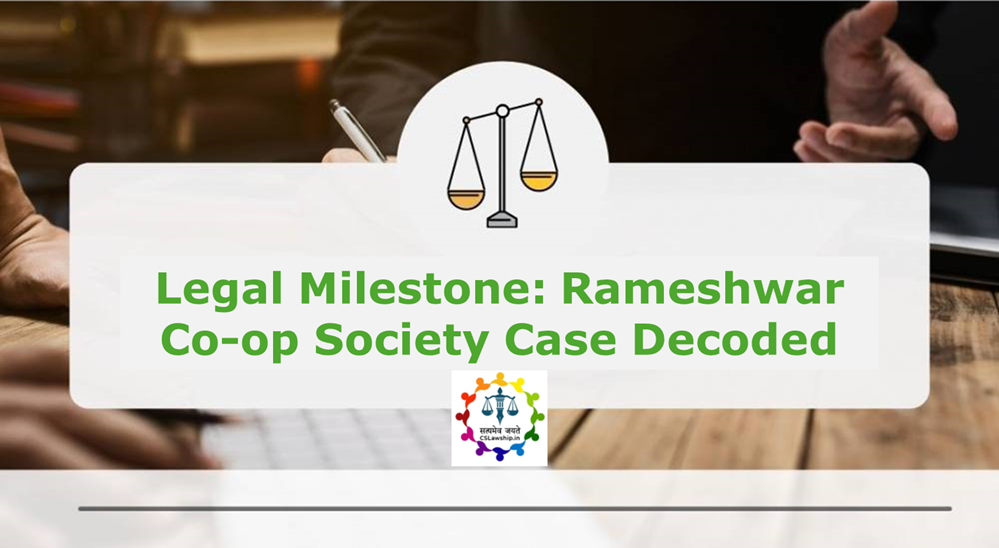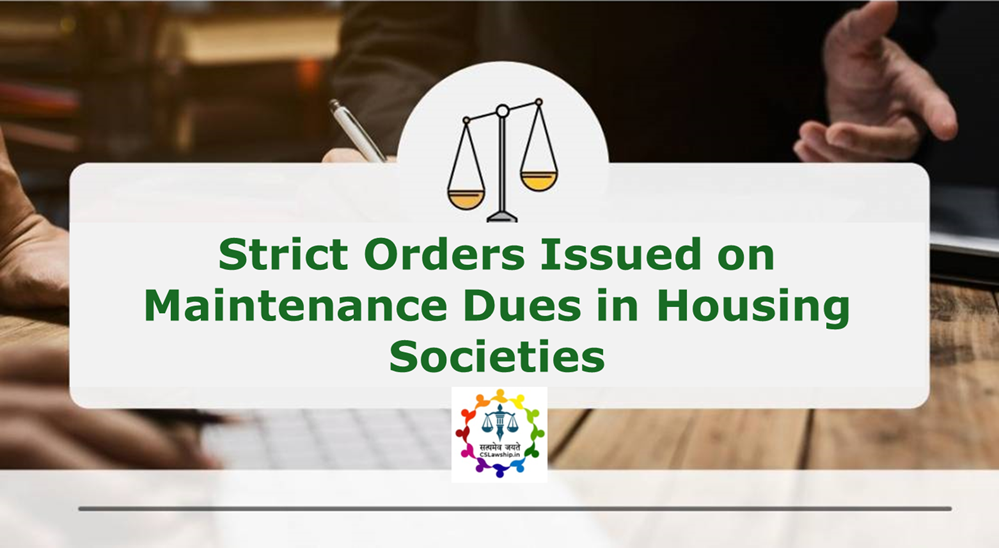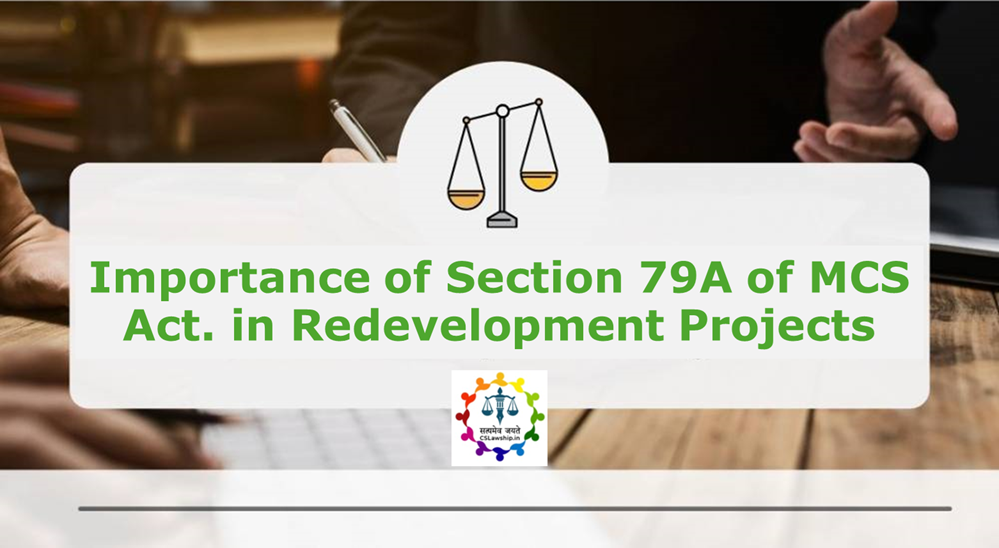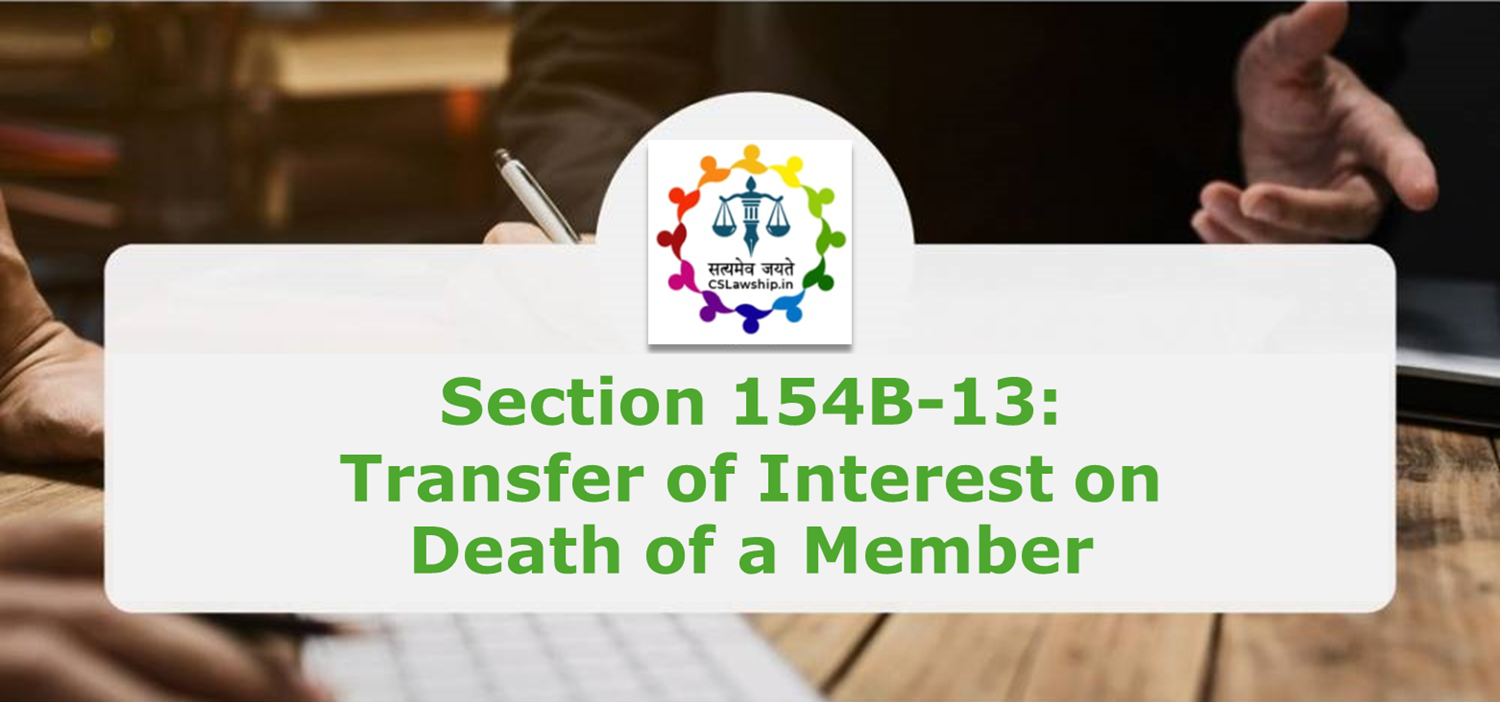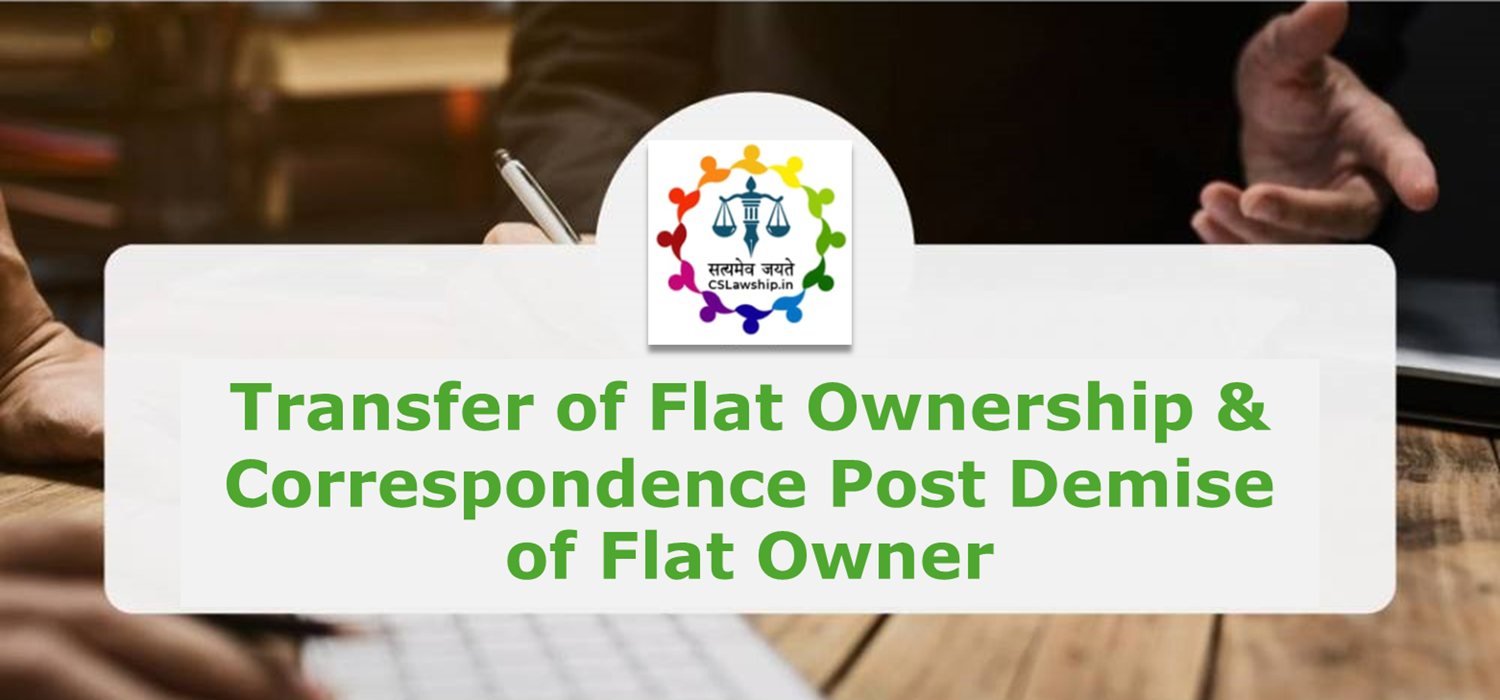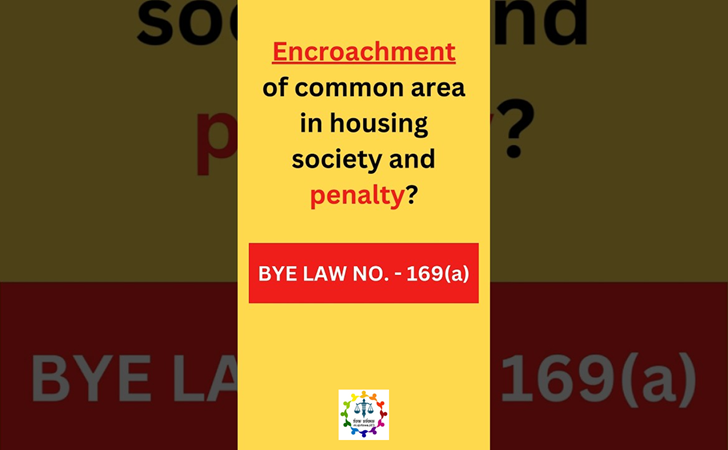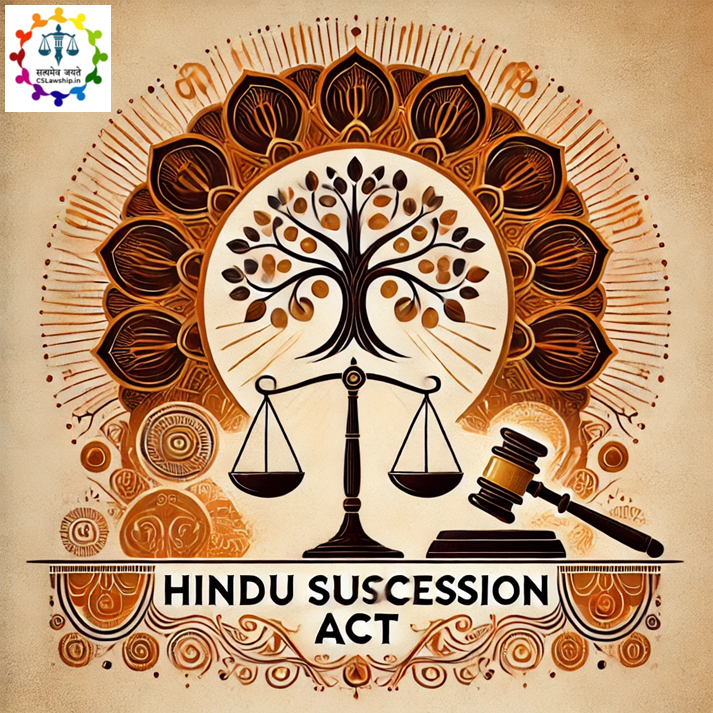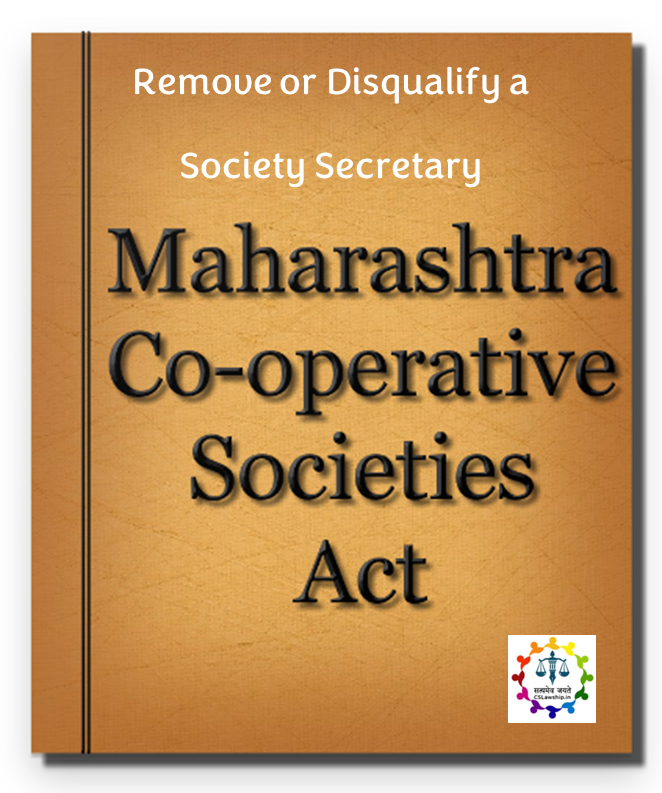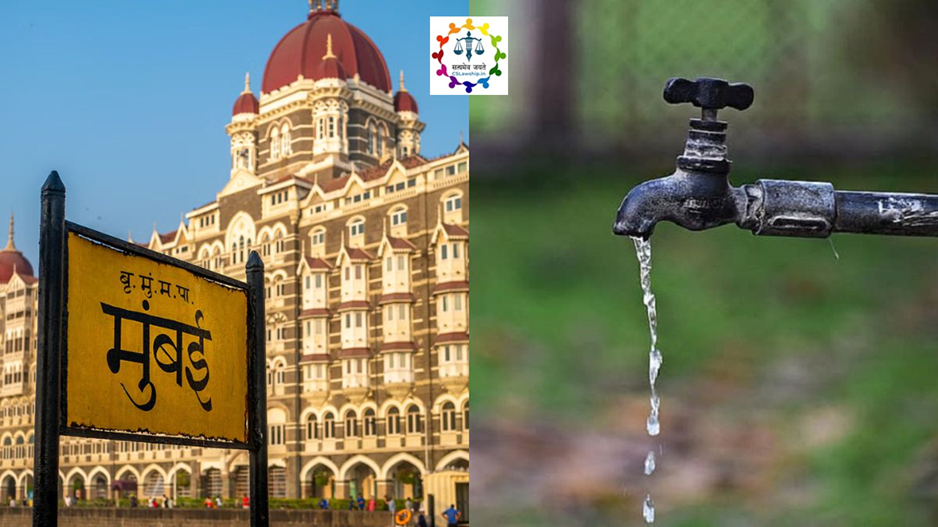Mandatory Written and Registered Rent / Leave and License Agreement in Maharashtra
Published on CSLawship.in
Author: CSLawship Editorial Team
The requirement for a written and registered Leave and License Agreement (or Rent Agreement) in cooperative housing societies in Maharashtra is primarily mandated by the following laws and guidelines:
- The Maharashtra Rent Control Act, 1999:
Section 55(1): This is the most crucial section. It explicitly states:
Notwithstanding anything contained in this Act or any other law for the time being in force, any agreement for leave and license or letting of any premises, entered into between the landlord and the tenant or the licensee, as the case may be, after the commencement of this Act, shall be in writing and shall be registered under the Registration Act, 1908.
Section 55(2): This subsection places the responsibility of getting the agreement registered squarely on the landlord. It further states that in the absence of a written registered agreement, the contention of the tenant about the terms and conditions of the premises shall prevail. This is a significant protection for tenants and a strong incentive for landlords to register.
Section 55(3): This section prescribes penalties for non-compliance by the landlord, stating that any landlord contravening the provisions of this section shall, on conviction, be punished with imprisonment which may extend to three months or with fine not exceeding rupees five thousand or with both. - The Indian Registration Act, 1908:
Section 17(1)(d): This section generally deals with documents for which registration is compulsory. While
Leave and License Agreements are not explicitly listed in the original Act, the Maharashtra Amendment to the Registration Act or specific state rules make it compulsory for these agreements, particularly in light of Section 55 of the Maharashtra Rent Control Act, 1999.
Section 17(1A) (inserted by Maharashtra Amendment):
This amendment makes it clear that documents containing contracts to transfer for consideration any immovable property for the purpose of Section 53A of the Transfer of Property Act, 1882, shall be registered. While a Leave and License agreement does not transfer property, the state amendments and the explicit mandate of the Maharashtra Rent Control Act, 1999, effectively bring Leave and License agreements under the purview of compulsory registration.
Section 49: This section deals with the effect of non-registration of documents required to be registered. It states that such documents cannot affect any immovable property comprised therein, cannot be received as evidence of any transaction affecting such property, and cannot be used to confer any power to adopt. While a Leave and License agreement does not transfer property, non-registration significantly weakens the owner's legal standing in case of disputes. - The Maharashtra Cooperative Societies Act, 1960 (MCS Act, 1960) and Maharashtra Cooperative Societies Rules, 1961:
While these acts don't directly mandate the registration of a Leave and License agreement, they empower cooperative housing societies to frame Bylaws that govern the conduct of their members.
Model Bylaws for Cooperative Housing Societies in Maharashtra: The Registrar of Cooperative Societies issues Model Bylaws that societies are encouraged to adopt. These model bylaws invariably include clauses that require a member letting out their flat to:- Obtain prior permission from the society's managing committee.
- Inform the society in writing about the details of the licensee/tenant.
- Submit a copy of the registered Leave and License agreement to the society.
- Ensure police verification of the tenant.
- Pay a non-occupancy charge (often a multiple of the service charges, as per government directives) to the society.
- Ensure the tenant adheres to the society's rules and regulations.
Section 79A of MCS Act: This section grants the Registrar the power to issue directions to societies in the public interest. Directives related to tenant verification and submission of registered agreements often fall under this power.
- The Maharashtra Stamp Act, 1958:
Article 36A: This article of the Maharashtra Stamp Act, 1958, specifies the stamp duty payable on a Leave and License Agreement. The duty is calculated based on the rent, deposit (refundable and non-refundable), and the duration of the agreement. Proper stamp duty must be paid for the agreement to be legally valid and admissible in court.
How it Secures the Owner from Illegal Possession by Tenant
As explained previously, a registered Leave and License agreement offers robust protection because:
- No Tenancy Rights Created: I It is a license to occupy, not a transfer of interest. The Maharashtra Rent Control Act, 1999, particularly with its emphasis on Leave and License, helps prevent the licensee from claiming statutory tenancy rights that were historically problematic for landlords.
- Easier Eviction: Sections of the Maharashtra Rent Control Act, such as Section 24, allow a landlord to recover possession of premises given on a license on the expiry of the license period. This is a relatively simpler process compared to evicting a statutory tenant.
- Legal Validity and Evidence: Registration makes the agreement a public document, admissible in court, and provides irrefutable evidence of the terms and conditions, the duration of occupancy, and the nature of the relationship licensor-licensee.
- Police Verification Mandate: Often tied to the societys bylaws and government directives, police verification, facilitated by the registered agreement, adds a layer of security.
Other Issues Faced by the Owner Due to Tenant Irregularities with legal context where applicable
Even with robust laws, practical challenges persist:
- Non-payment/Delayed Payment of Rent/Maintenance: This is a breach of the Leave and License agreement. The owner can initiate legal proceedings under the provisions of the Maharashtra Rent Control Act, 1999 e.g., Section 24 or general civil law for recovery of dues and eviction. However, legal processes can still be time-consuming.
- Damage to Property: Clause in the Leave and License agreement will cover this. The owner can claim damages in court.
- Nuisance and Disturbance: Society bye-laws will have clauses regarding nuisance. The society can fine the member owner for the tenants actions, and the owner, in turn, can take action against the tenant based on the agreement clauses.
- Violation of Society Bylaws: As the owner is the member of the society, they are ultimately responsible for ensuring adherence to bylaws. The society can impose penalties on the owner. The owners agreement with the tenant should ideally include a clause making the tenant liable for adhering to society rules.
- llegal Activities: This is a serious concern. The owner can immediately terminate the agreement and seek eviction. Police complaints would also be necessary.
- Subletting Without Permission: If the Leave and License agreement prohibits subletting, this is a clear breach. The owner can terminate the agreement and seek eviction.
- Overstaying the Term: This is a direct violation of the agreements core condition. The owner can immediately initiate eviction proceedings under the Maharashtra Rent Control Act, 1999 - Section 24.
- Disputes with Society Management: The owner, as the member, is the primary point of contact for the society. Any issues caused by the tenant reflect on the owner.
- Increased Society Scrutiny and Fines: The society, under its bylaws and the MCS Act, 1960, can impose penalties or take action against the member for non-compliance, particularly if the tenant violates rules and the owner fails to address it.
- Refusal of Police Verification: This is a serious security lapse and can lead to direct intervention by the society or even local police if reported. The owner should make police verification a pre-condition for handing over possession.
By ensuring the agreement is in writing, properly stamped, and registered, along with due diligence in tenant selection and adherence to society bye-laws, an owner significantly strengthens their legal position and minimizes potential issues in a cooperative housing society in Maharashtra.
For access to the official circular and guidance on society laws, visit www.CsLawship.in
Download Govt. Order 2002 member Non Payment
Registered Rent - Leave and License Agreement in Maharashtra
Share This Blog
Spread the word! Share our blog on your favorite platform or send it to your friends.

